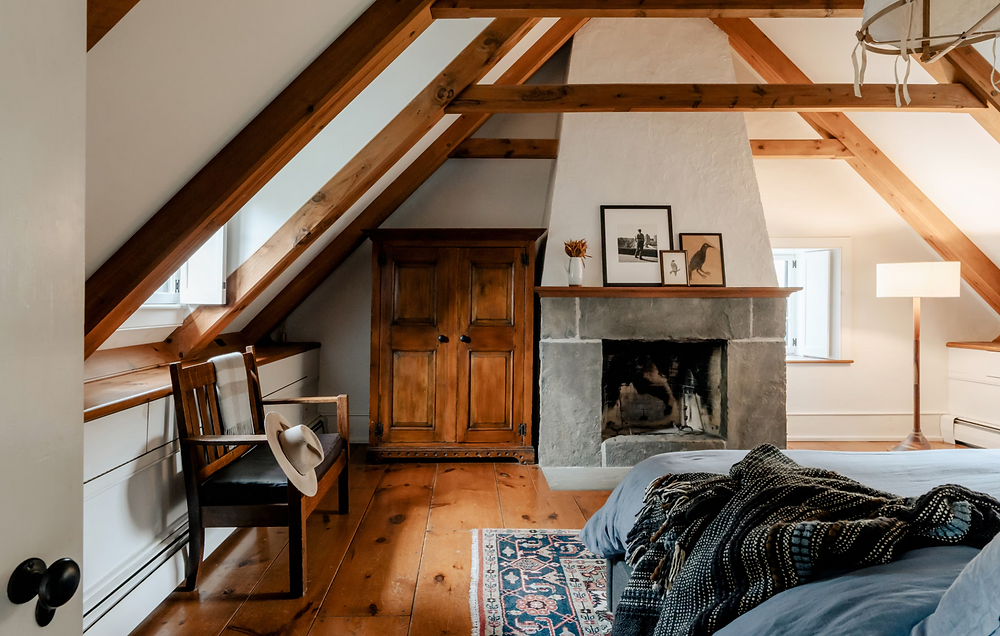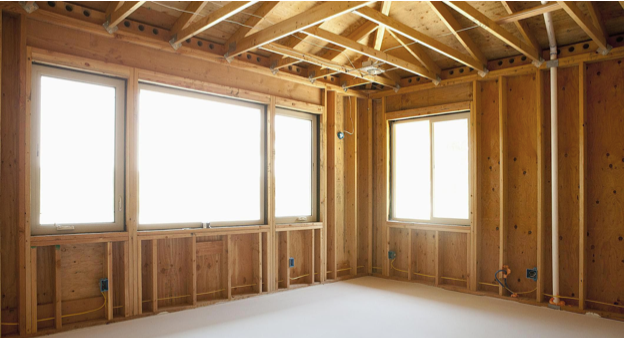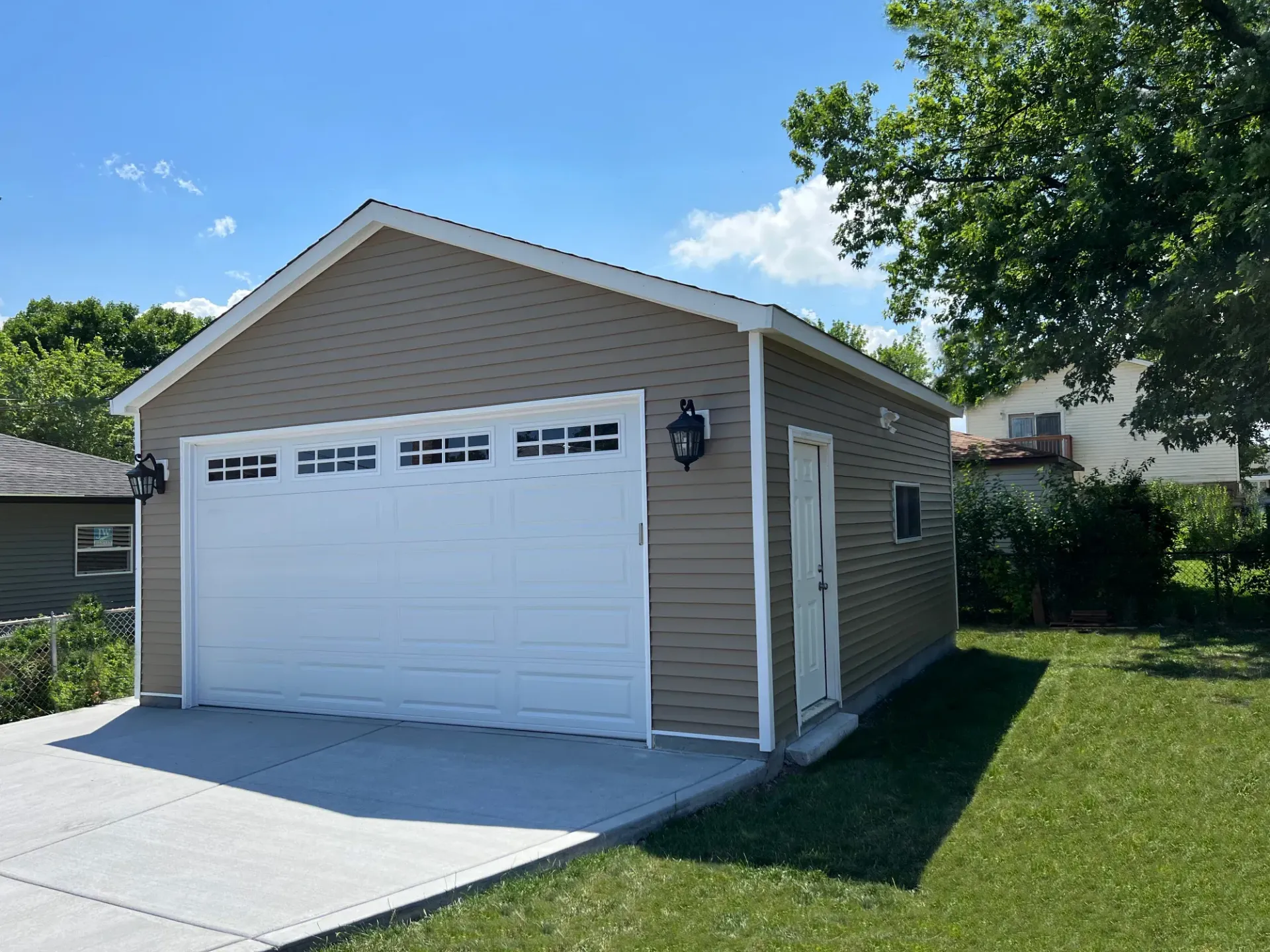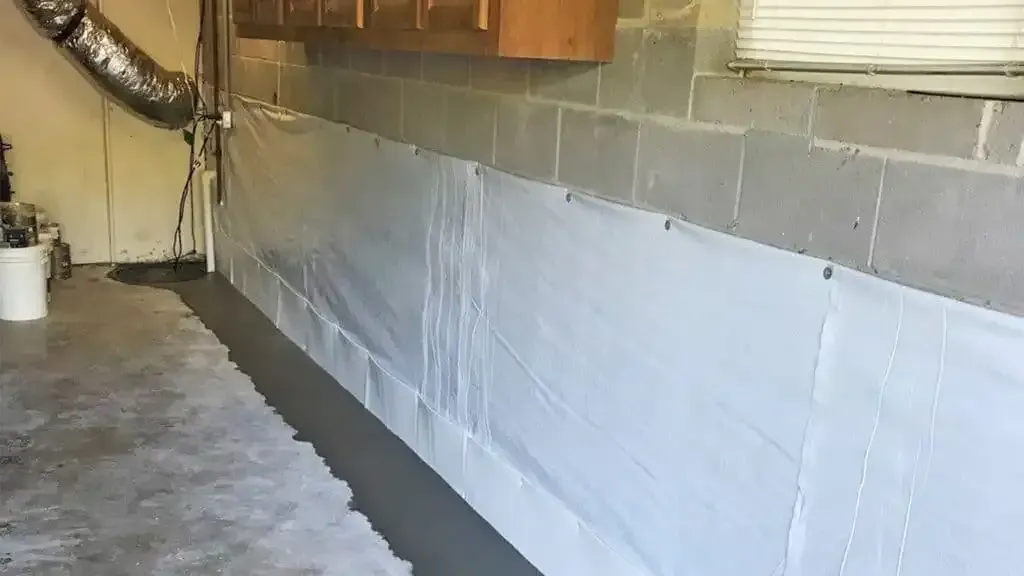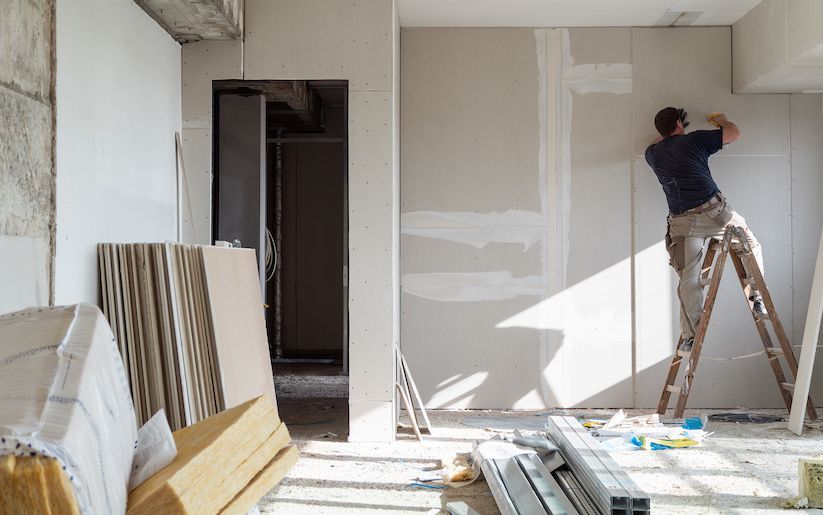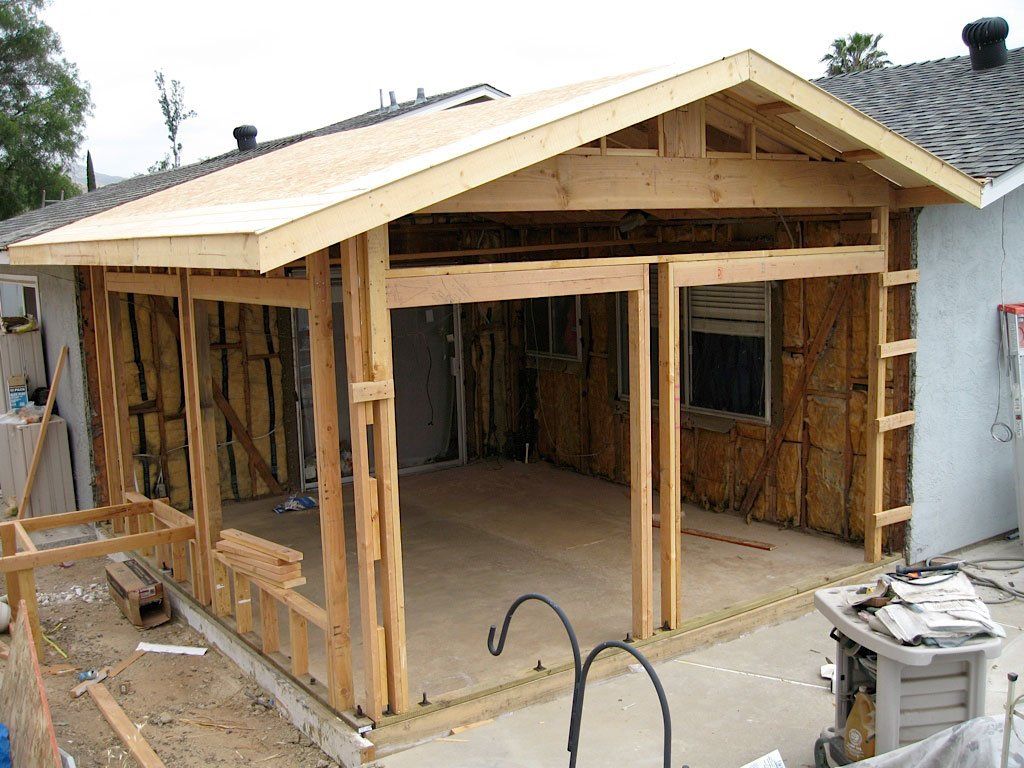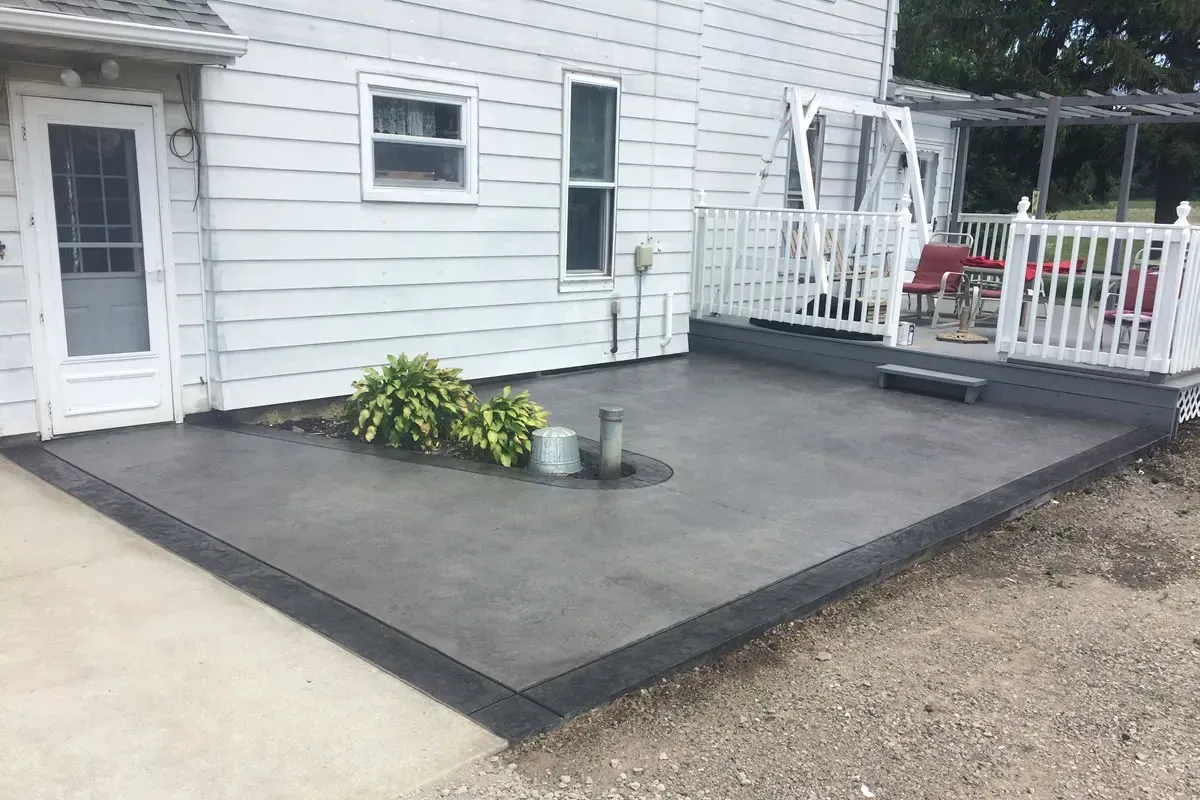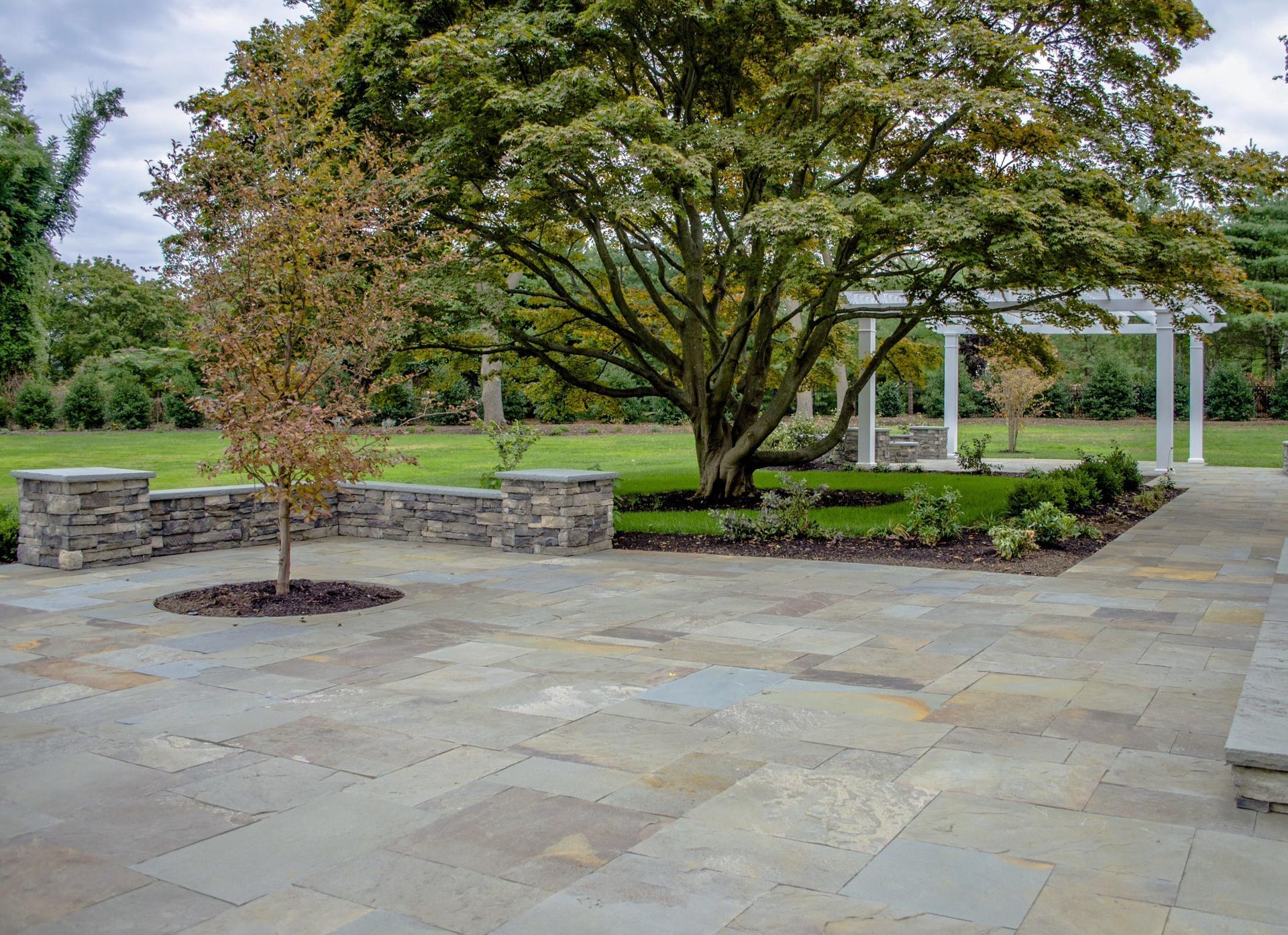Stamped Concrete vs. Pavers for Rhode Island Patios
For most Rhode Island homeowners, pavers are the superior choice due to their exceptional freeze-thaw resistance, easy repair capabilities, and superior drainage - critical factors given our state's challenging climate conditions. However, stamped concrete can be cost-effective for larger patios when properly installed with adequate drainage and winter protection.
Stamped Concrete for Rhode Island Patios
What is Stamped Concrete?
Stamped concrete involves pouring concrete and then pressing patterns and textures into the surface while it's still wet. The result mimics the appearance of brick, stone, slate, or tile at a fraction of the cost of natural materials.
Advantages of Stamped Concrete in Rhode Island
Cost-Effective for Large Areas: Stamped concrete typically costs $8-15 per square foot in Rhode Island, making it 20-30% less expensive than comparable paver installations for large patios.
Seamless Surface: Unlike pavers, stamped concrete creates a continuous surface without joints where weeds can grow - a significant advantage for busy Rhode Island homeowners.
Design Versatility: Modern stamping techniques can replicate virtually any material, from New England fieldstone to European cobblestone, allowing you to match your home's architectural style.
Low Maintenance: Once sealed, stamped concrete requires minimal upkeep beyond occasional cleaning and resealing every 2-3 years.
Disadvantages of Stamped Concrete in Rhode Island
Freeze-Thaw Vulnerability: Rhode Island's winter temperature fluctuations can cause concrete to crack. Our state experiences an average of 25-30 freeze-thaw cycles annually, putting significant stress on concrete surfaces.
Difficult Repairs: When stamped concrete cracks or stains, repairs often require resurfacing large sections, which can be expensive and may not perfectly match the existing surface.
Slippery When Wet: Sealed stamped concrete can become slippery during Rhode Island's frequent rain and snow, potentially creating safety hazards.
Limited Drainage: Poor drainage can lead to ice formation and water damage - particularly problematic given Rhode Island's high water table in many areas.
Pavers for Rhode Island Patios
What are Pavers?
Pavers are individual units made from concrete, brick, or natural stone that interlock to create a durable patio surface. They're installed over a carefully prepared base of sand and gravel.
Advantages of Pavers in Rhode Island
Superior Freeze-Thaw Resistance: Individual pavers can expand and contract independently, making them highly resistant to Rhode Island's harsh winter conditions. This flexibility prevents the widespread cracking common with concrete.
Easy Repairs: Damaged pavers can be individually replaced without affecting the surrounding area - a crucial advantage for long-term maintenance in Rhode Island's challenging climate.
Excellent Drainage: The joints between pavers allow water to drain through the surface, reducing ice formation and preventing water damage. This is essential given Rhode Island's average annual precipitation of 47 inches.
Non-Slip Surface: Most pavers provide better traction than sealed concrete, improving safety during Rhode Island's wet and icy conditions.
Immediate Use: Unlike concrete, which requires curing time, paver patios can be used immediately after installation.
Higher Property Value: Quality paver installations typically add more value to Rhode Island homes than stamped concrete, with better long-term durability.
Disadvantages of Pavers in Rhode Island
Higher Initial Cost: Paver installation typically costs $12-20 per square foot in Rhode Island, making it more expensive upfront than stamped concrete.
Weed Growth: Joints between pavers can allow weed growth, requiring regular maintenance with polymeric sand or sealers.
Potential for Shifting: Without proper installation and edge restraints, pavers can shift over time, particularly during Rhode Island's freeze-thaw cycles.
More Complex Installation: Proper paver installation requires expertise in base preparation and drainage - crucial for Rhode Island's clay-heavy soils and high water table.
Climate Considerations for Rhode Island
Winter Weather Impact
Rhode Island's winters are particularly harsh on outdoor surfaces. With average temperatures ranging from 20°F to 40°F and frequent freeze-thaw cycles, both materials face significant challenges:
Snow Load: Rhode Island receives an average of 33 inches of snow annually. Both stamped concrete and pavers must handle snow removal equipment and ice melt chemicals.
Salt Damage: Road salt and ice melts commonly used in Rhode Island can damage concrete surfaces over time. Pavers are generally more resistant to salt damage.
Ice Formation: Poor drainage leads to ice formation, which can damage concrete and create safety hazards. Pavers' superior drainage capabilities provide a significant advantage.
Summer Conditions
Rhode Island's humid summers present their own challenges:
Heat Expansion: Both materials expand in heat, but pavers' individual design allows for better expansion management.
Humidity and Mold: High humidity can promote mold and mildew growth. Pavers' drainage capabilities help prevent standing water that contributes to these issues.
Cost Comparison for Rhode Island Projects
Initial Installation Costs
Stamped Concrete: $8-15 per square foot
- 400 sq ft patio: $3,200-6,000
- 800 sq ft patio: $6,400-12,000
Pavers: $12-20 per square foot
- 400 sq ft patio: $4,800-8,000
- 800 sq ft patio: $9,600-16,000
Long-Term Costs (10-Year Period)
Stamped Concrete:
- Resealing (every 2-3 years): $600-900
- Potential crack repairs: $800-2,000
- Total 10-year cost: $1,400-2,900
Pavers:
- Joint sand replacement: $200-400
- Individual paver replacement: $300-600
- Total 10-year cost: $500-1,000
When factoring in long-term maintenance and durability, pavers often provide better value over time for Rhode Island homeowners.
Best Practices for Rhode Island Installations
For Stamped Concrete Success
- Proper Drainage: Essential for preventing ice damage and water pooling
- Quality Sealing: Use high-quality sealers designed for freeze-thaw conditions
- Expansion Joints: Include adequate expansion joints to prevent cracking
- Professional Installation: Critical for proper base preparation and drainage in Rhode Island's clay soils
For Paver Success
- Adequate Base Preparation: Typically 6-8 inches of compacted gravel base for Rhode Island conditions
- Proper Drainage: Include drainage solutions for Rhode Island's high water table
- Quality Edge Restraints: Prevent shifting during freeze-thaw cycles
- Polymeric Sand: Use high-quality joint sand to prevent weed growth and improve stability
Environmental Considerations
Sustainability
Pavers are generally more environmentally friendly:
- Many are made from recycled materials
- Individual replacement reduces waste
- Permeable options help manage stormwater runoff
- Can be reclaimed and reused
Stamped Concrete has environmental impacts:
- Higher carbon footprint from cement production
- Entire sections may need replacement when damaged
- Less permeable, contributing to runoff issues
Rhode Island Regulations
Some Rhode Island municipalities have stormwater management requirements that may favor permeable paving solutions. Check with your local building department about:
- Stormwater management requirements
- Permeable surface incentives
- Setback requirements for hardscaping
Making the Right Choice for Your Rhode Island Patio
Choose Stamped Concrete If:
- You have a large patio area and budget is a primary concern
- You prefer a seamless, uniform appearance
- Your property has excellent natural drainage
- You're willing to invest in professional installation and regular maintenance
Choose Pavers If:
- Durability and longevity are priorities
- You want easier repair options
- Your property has drainage challenges
- You prefer the classic look of individual stones or bricks
- You're concerned about Rhode Island's freeze-thaw cycles
Popular Rhode Island Design Trends
Stamped Concrete Patterns
- New England fieldstone
- Slate texture
- European cobblestone
- Wood plank patterns
Paver Styles
- Traditional brick herringbone
- Natural stone irregular patterns
- Modern large-format pavers
- Permeable paver systems
Professional Installation Matters
Regardless of your choice, professional installation is crucial for Rhode Island conditions. Poor installation can lead to:
- Premature cracking or shifting
- Drainage problems
- Ice damage
- Shortened lifespan
Look for contractors with:
- Rhode Island licensing and insurance
- Experience with local soil conditions
- Knowledge of proper drainage techniques
- References from recent local projects
Ready to transform your Rhode Island outdoor space?
Rockhouse Construction specializes in both stamped concrete and paver installations throughout the Ocean State. Our experienced team understands the unique challenges of Rhode Island's climate and soil conditions, ensuring your patio will look beautiful and perform well for years to come.
Contact us today for a free consultation and estimate on your patio project.


